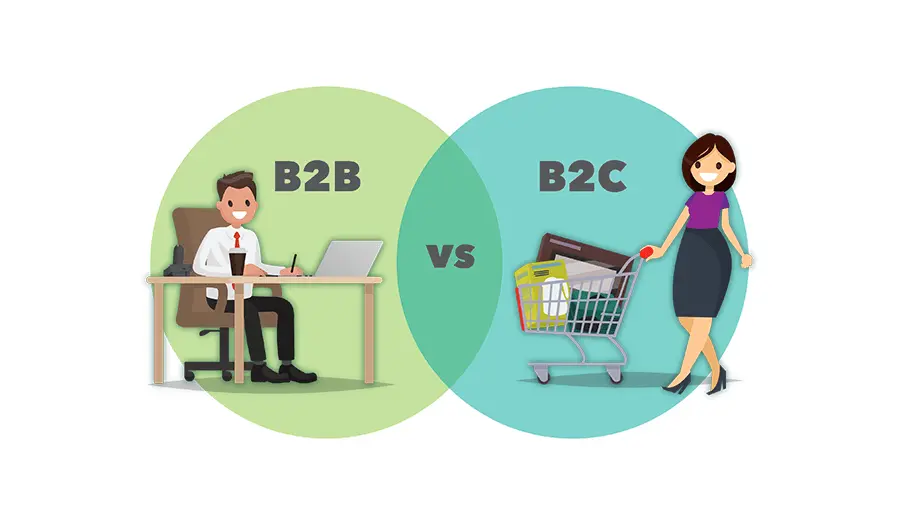Water Softener
If you face scale formation in your water-using appliances, taps, and other places, then a water softener is the only solution to escape from the hardness-causing agents. You can face several abnormalities with water when there is no water softener in the house as water wastage, more detergent consumption, and it can affect your skin quality. A quality water softener can eliminate water hardness causing agents like excess minerals, calcium, magnesium, and sulfates to make it soft. The primary duty of the water softener is to remove scaling from raw water. Check out the best water softener price RO care India and go for your favorite one. At RO Care India, we have listed a few best water softener systems so you can shop for the top-rated unit among all. Here at RO Care India, you can check and compare the water softener unit, which helps you select the right water softener at the best and most affordable price.
Know The Coolest Things About Using Water Softeners
A water softener is a type of filtration system that removes hardness from water as eliminating calcium and magnesium ions in an ion exchange process. A water softener deals with one of the most customary water problems called hardness. Hard water surges scale builds up in your pipes, clogging of pipeline and declining water pressure. Scale accumulation shortens the life of water-using appliances like dishwashers, washing machines and destroys its spares.
The higher the water temperature, the more ions like calcium and magnesium will solidify into solid deposits inside your water heater. Your laundry consumes more detergent to cleanse the clothes as you need to use a water softener to make it more effective. Bathing in hard water leaves your skin itchy and dry along with your hair. You need a sheer amount of time and energy to clean up the dirty clothes in the presence of hard water. A water softener is the best solution to lower the negative effects of water hardness.
Do I Really Need A Water Softener?
The water softener system softens the water by eliminating the excess mineral suspended in water and makes it hard to consume. Removing these minerals from the water also removes all the unhealthy substances from the water that makes it ready to consume. Hard water can clog your pipes, restrict the water flow, and results in providing spotless water. The water hardness assists in scale-build-up, making your appliances consume additional power than normal to heat and cool the water. Water hardness increases your electricity consumption and lowers the life of the appliances and pipes.
When you wash your hands in hard water, you may feel the build-up of skin rash due to dryness and roughness because of excessive soap crust in the water. This is the cause most of the families use a water softener to get rid of all health issues. You can easily find the best water softener online for all your appliances that need water to work, just like washing machines, bathroom showers, and geysers. Water is a sure necessity but the requirement of water softener depending on where you living and how much water you are using for which purpose.
You need to understand whether to soften or not is a matter of personal preference and the presence of excess minerals. Hard water contains more dissolved minerals than soft water. The presence of calcium and magnesium poses several issues and shortens the service lives. Softening of water removes the hardness minerals, calcium, magnesium, bicarbonates, and sulfates, from the hard water and helps to make it portable.
How Do Water Softeners Work And Its Importance?
Water softeners soften the water by removing negative ions and replacing them with positive ions, making the water usable to your home. Essentially, all water softeners work to remove the calcium and magnesium ions by using an exchange with sodium or potassium ions. Once this exchange completes, the water softener will regenerate soft water and flushes out the excess ions until it has replaced sodium ions. Soft water has numerous positive impacts on your hair, skin and lowers the drying effects of hard water. Water softening systems also surge the lifecycle of your other home appliances and prevents pipeline rusting and clogging.
Types Of Water Softeners And Its Advantages
There are four main kinds of water softeners in the market
- Electric water softeners
- Salt-based
- Salt-free
- Dual-tank
#1. Electronic Water Softeners: Do They Work For You?
If you are searching for a permanent solution for water hardness and its impacts on your home appliances, you may think about electronic water softeners. Electronic water softeners work by creating a magnetic field to alter the hardness of water before it flows into your home. Water softeners use template-assisted crystallization media to deal with the hardness of the water. Before diving into the mechanism of these devices that are used to reduce scaling and break down of these excess salts with an electronic water conditioner.
These water softener devices claim to use electricity to create a magnetic field around water and do its work before supplying it into your home. The most common electronic water softeners are the most liked hard water softeners in the market. The water softener unit passes electricity through the wires that have been formed into coils around the water pipe and then generates a small magnetic field where your tap water passes through.
What Is The Problem In Water We Trying To Solve?
Electronic water softeners claim to remove scaling; it results from water hardness and a buildup of minerals deposits left behind by hard water. Scaling is an insoluble leftover that ticks stubbornly to surfaces pipes and appears whitish in appearance. If your home contains hard water, you will find scaling on fixtures and sinks which come into contact with your running tap water. Most often, you can see scaling in your bathroom sink and shower and inside your pipes.
If your home has older pipelines, then you can see mineral buildup results in your pipeline narrower and results in reduced water flow. You can see the same scale build-up inside of your water heater that leads to lower its efficiency. The solution to these problems is to alter the excess dissolved minerals in the water using a water softener, which removes the excess minerals and replaces them with sodium ions.
Do Electronic Water Softeners Work As Per Your Expectation?
The effectiveness of electronic water softeners has an impact on scaling and different from ion-exchange water softeners. The only difference is the scale buildup between water treated with a magnetic conditioner and untreated water. If you are looking for a complete solution to get rid of the impacts of hard water, then RO Care India offers both residential and commercial water softeners. First, it removes the dissolved hard minerals to soften water and then treat the water to eliminate scaling.
#2. How Salt-Based Water Softeners Work And Its Required Maintenance
Salt-based water softeners convert hard water into soft water in a process called ion exchange. Using an electronic metered valve mounted above the resin tank, the system counts the quantity of water by gallons after completing the cleaning cycle. Once the resin bed ranges its final point, the water cleaning cycle begins. During the cleaning cycle, a series of back flushes remove the trapped minerals and drain them out of the system. At the point when water flows through the resin bed tank, excess salts like sodium and potassium chloride are substituted with hardness-causing minerals as calcium and magnesium, resulting in soft water. The salts are also refilled in the resin bed during the start of the cycle, and the system is ready to go again to do the same.
Salt-based softeners are intended to eliminate hardness-causing ions from hard water. You will probably notice a little to no lime scale buildup on taps and water-using appliances in your home. You may also see your clothes appearing brighter and cleaner and your hair and skin no longer feeling dry and itchy because of hard water. You can also get long-term benefits as efficient and longer-lasting appliances as well as needs fewer repairs and plumbing maintenance. Despite all these benefits, most salt-based softeners are expensive than salt-free softeners and often require regular maintenance. Salt-based softeners are effective in softening hard water and should be used if your hard water levels are higher than normal.
Things Involved In Maintenance of Salt-Based Water Softeners?
The only maintenance need in the case of salt-based softener is setting up the primary timing limits for regeneration and the need of refilling the salt. You also have to keep an eye on making sure the brine tank doesn't create any salt bridge. A salt bridge creates when a hard crust in the brine tank creates a space between the water and the salt. To prevent this, you need to take the end of a broomstick and break it up. Salt mush is another issue where dissolved salt recrystallizes and creates sludge on the lower part of the brine tank. Humidity is the leading cause of water softener not working, so keep an eye on your salt level to ensure the system does not meet any issues.
Know-How To Pick The Right Size Of The Water Softener
Size is one of the most significant aspects to think about when deciding on your best-matched water softening. A salt-based unit is too small and will likely limit the supply of softened water in your home with low water pressure. In the similar way, the too large and bulky water softener unit can cause severe sanitary issues. Salt-based water softeners are usually recognized by the number of hardness grains they can remove and the salt efficiency required for the regeneration. People think that only the physical size of the water softener matters, but the softening capacity of the system truly determines its suitability for your needs.
#3. How Salt-Free Water Softener Works On Different Types Of Water
Unlike salt-based softeners that uses an ion exchange process to remove hard water minerals from water, salt-free water softeners use a physical process known as template-assisted crystallization. The type of process converts the excess minerals in the water to a hardness crystal that will not stick to any hard surface inside your home. Salt-free water softeners are also known as water conditioners as they do not really soften the water; instead, they condition or neutralize the water as the salt-free softener systems do not trap excess materials, no need for any separate cleaning cycle to remove captured ions. A salt-free water softener is inexpensive than salt-based water softeners and is easy to install – if you have the right equipment.
The salt-free type of system requires less maintenance since no power is needed to run the cleaning cycle, and a negligible amount of water is wasted when removing the minerals from the resin beds. You can also save water and electricity bills by using a salt-free water softener. If you are health-conscious, you must appreciate that no added salts are used in the water softening process that makes it salt-free conditioning. A salt-free water softener may not work effectively when it is exposed to other contaminants like lead and chlorine. That is why we suggest customers have some filtration system in front of the softener, so the media does not leak. If you do not want to deal with an excess of salts and chemicals alone, then salt-free softeners are the one to go.
Know!! How Hard Is Your Tap Water Supply
Water hardness is a measurement of how much calcium and magnesium ions is dissolved in your tap water supply. To determine the exact hardness level in your tap water, you can perform a water quality test and get the results. If your water directly comes from a well, river, or any other natural groundwater source, you can either purchase a water quality test kit and check for hardness at home or send a water sample to the accredited water quality testing lab. The water hardness is often displayed in mg/L in test kits, but you can simplify it to convert in gallons per liter. If you are using municipal water supply, then you can check the annual water quality report online to see the exact water hardness by your local water authorities.
If you are planning to buy a salt-based water softener, it is crucial to know the presence of hardness before purchasing a water softener. Get the exact number of hardness can result in an improperly sized water softener and a number of after-installation hassles. The water hardness number is required at the time of programming your system, so you need to get the hardness value. You must need to increase your grain hardness to compensate for the presence of iron in your tap water.
Let's Summarize The Need Of Salt-Free Water Softener
- Salt-free softeners cut scale build-up rather than softening the water
- It is designed to look like regular water softeners
- It can reduce odor, sediment, and suspended chemicals like chlorine in trace quantities
- The salt-free water softener doesn't require the same amount of routine maintenance
- It is considered a chemical-free operation
- This type of water softener needs less electricity and also no water waste.
The Benefits Of Having Dual-Tank Water Softener
The reason you need a twin tank water softener is for its consistent soft water supply at 24/7. This is not possible with the single tank water softener system. A water softener works by taking hard water and transporting it into the dual tank where there is a resin bed. The resin in the first tank needs to regenerate its water softener resin to remove excess hardness from your water. The dial-tank system switches over to the second tank to soften your water and ensure the uninterrupted supply to your home.
A dual-tank water softener consists of two tanks; the first one is the resin tank, which holds resin beads covered in a sodium solution. A dual-tank water softener works by removing hard water over the resin to collect the excess calcium and magnesium that makes it hard to soften water. The dual-tank water softeners are the trending technology for residential spaces.
- It might look higher in cost because of the extra tank
- It needs more space to install because of twin tanks
- Highest efficiency and less water and salt wastage
- Continuous sound water quality with dual tank
Dual tank water softeners are becoming more and more popular in recent years. It is not limited to commercial and industrial uses only, but some homeowners also choose a dual-tank system for their homes to ensure an uninterrupted water supply. If you are going to market to buy a water softener, you may have to extra cost is for a twin tank system. There are a number of factors you should be considered before making the final payment. You can get a number of advantages of having a twin tank water softener compared to the single tank water softener.
Advantages of a Having Dual-Tank Water Softener
- Get 24/7 soft water with no downtime and out of order
- More efficient in water softening and takes less salt and energy
- More consistent water quality with controlled water flow
- You need a twin tank water softener for consistent soft water 24/7 that is no possible with the single tank system
- A dual-tank water softener works by taking hard water and bringing it into the tank, where there it passes through a resin bed the excess of ions attached to the resin and are replaced with sodium ions.
- Once the resin bed is filled with the hard water particles, it must be regenerated so that it can repeat its works effectively. During the regeneration process, your softener is down, and hard water is running through your pipelines and other water using appliances.
- With a twin tank system, one water softening tank is regenerating sodium, and the other is used to soften water. This means no downtime and no hard water residue left.
- Twin tank systems are typically more efficient and regenerate only when required and rely on the water consumption and capacity by using a little energy and salt. Single tank water softeners are typically programmed to regenerate at night when less water requirement.
Who Needs the Dual-Tank Water Softener?
Typically, dual-tank water softeners are used in commercial applications where there is a greater need for water and consistent water quality throughout the day. However, for domestic purposes, the up-front cost is all about adding an additional tank is worth the benefits. The dual-tank softener is needed in larger families in an area with hard water. A twin tank system is the best option over a very large single tank softener as it is never out of water. It can be generally found in manufacturing industries, production factories, pharmaceutical industries, processing units, hospitals, colleges, and other places a fixed amount of water is needed uninterruptedly.
Frequently Asked Questions
It depends upon your requirement and budget. You can
check our list and call us at @92-688-87770. Our service center executive will
help you in selecting the best water softener.
A water softener treats hard water and converts it into soft water. It has the following advantages
- Prevent skin diseases
- Improve electronic device efficiency and durability
- Improve cleaning efficiency of water
Different models of water softeners are available in the Indian market; thus, their prices vary. Contact RO Care India service center executive and grab the best deal on the water softener.




